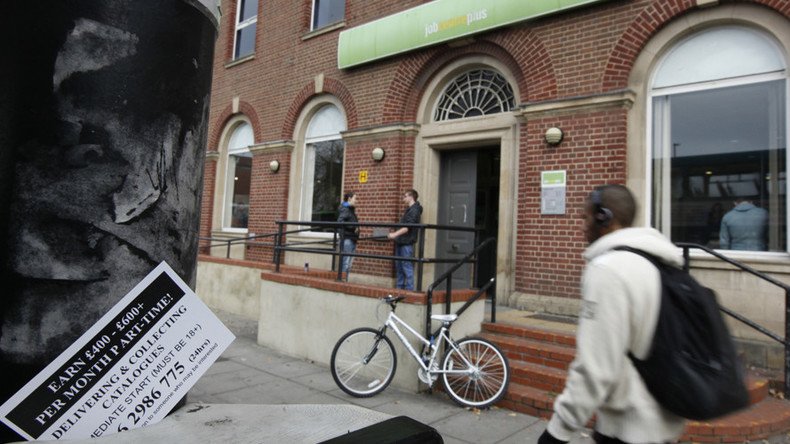No black men, no Muslim women: UK job market discrimination remains rife, report shows

Muslim and black men are more likely to end up unemployed despite doing better in school than their white peers, a new report suggests, as Britain offers a “broken social mobility promise” to its disadvantaged youth.
A report by the Social Mobility Commission found that while white boys from poor households performed worse in the educational system as a whole, it was their ethnic minority peers who found it difficult to enter professions after school or university.
Children from lower income Chinese families were found to be highly likely to move on to higher education after secondary school (70 percent), while five in 10 Bangladeshi and three in 10 black Caribbean youngsters accessed university. But the numbers were far lower for white British kids, with only 10 percent continuing their education.
But the figures changed radically when the groups were faced with job market conditions, where ethnic minority groups are given fewer secure offers.
“The British social mobility promise is that hard work will be rewarded. This research suggests that promise is being broken for too many people in our society,” said commission chairman and former Labour minister Alan Milburn.
“It is striking that many of the groups that are doing best at school or improving their results the most are losing out when it comes to jobs and opportunities later in life.”
Muslim women were found to be especially affected by underlying prejudices in the workplace and in obtaining jobs at managerial level or in professional occupations. Indeed, Bangladeshi and Pakistani women are now the lowest earners from all black and ethnic minority groups.
Condemning Britain’s failure to offer “a level playing field of opportunity,” Milburn added: “It is deeply concerning that poor white British boys are doing so badly in education, from the early years through to university. Yet they are less likely to be unemployed and face social immobility than young people from black and Asian communities, Asian women especially.
“Action is needed across the education system and labour market to better understand barriers to success. Renewed action is needed by government, educators and employers to dismantle them.”
The commission published a list of suggestions on how different British establishments can help address the problem.
Universities were told to invest in widening participation programs so to tackle the high dropout rates of poor black British students and make further efforts to appeal to poor white youths.
Businesses were told to employ specific support for Asian Muslim women wanting to progress in their careers.
Schools were advised to work with parents from demographics shown to be the least likely to get involved in their children’s education, such as low income white families and Gypsy, Roma and traveler groups.
“Everyone should have the opportunity to go as far as their talents will take them, no matter what their background,” a Department for Education spokesman said.
“We are working to make more good school places available, in more parts of the country, so that every child can have access to an education that will unlock their potential.”












